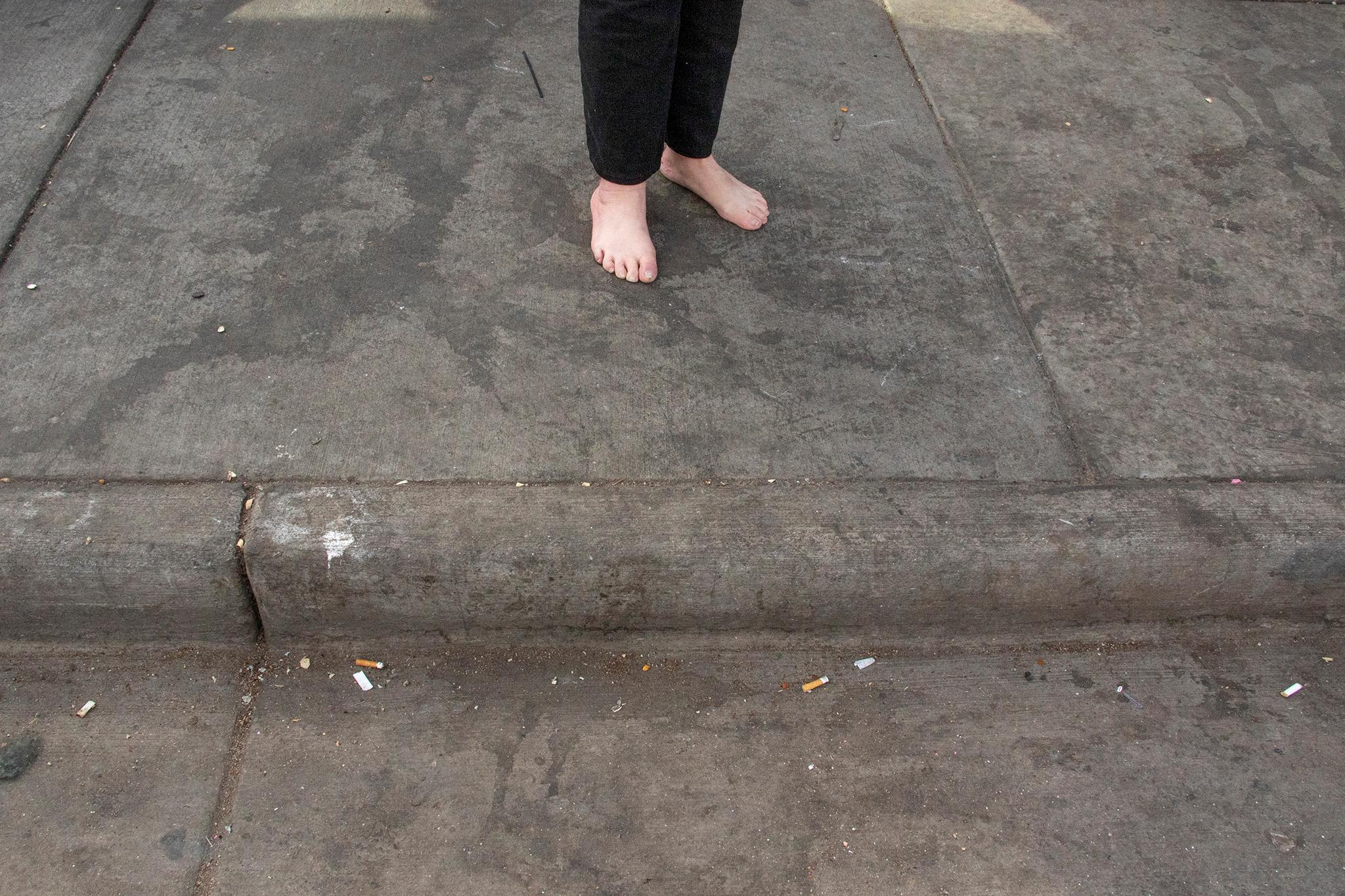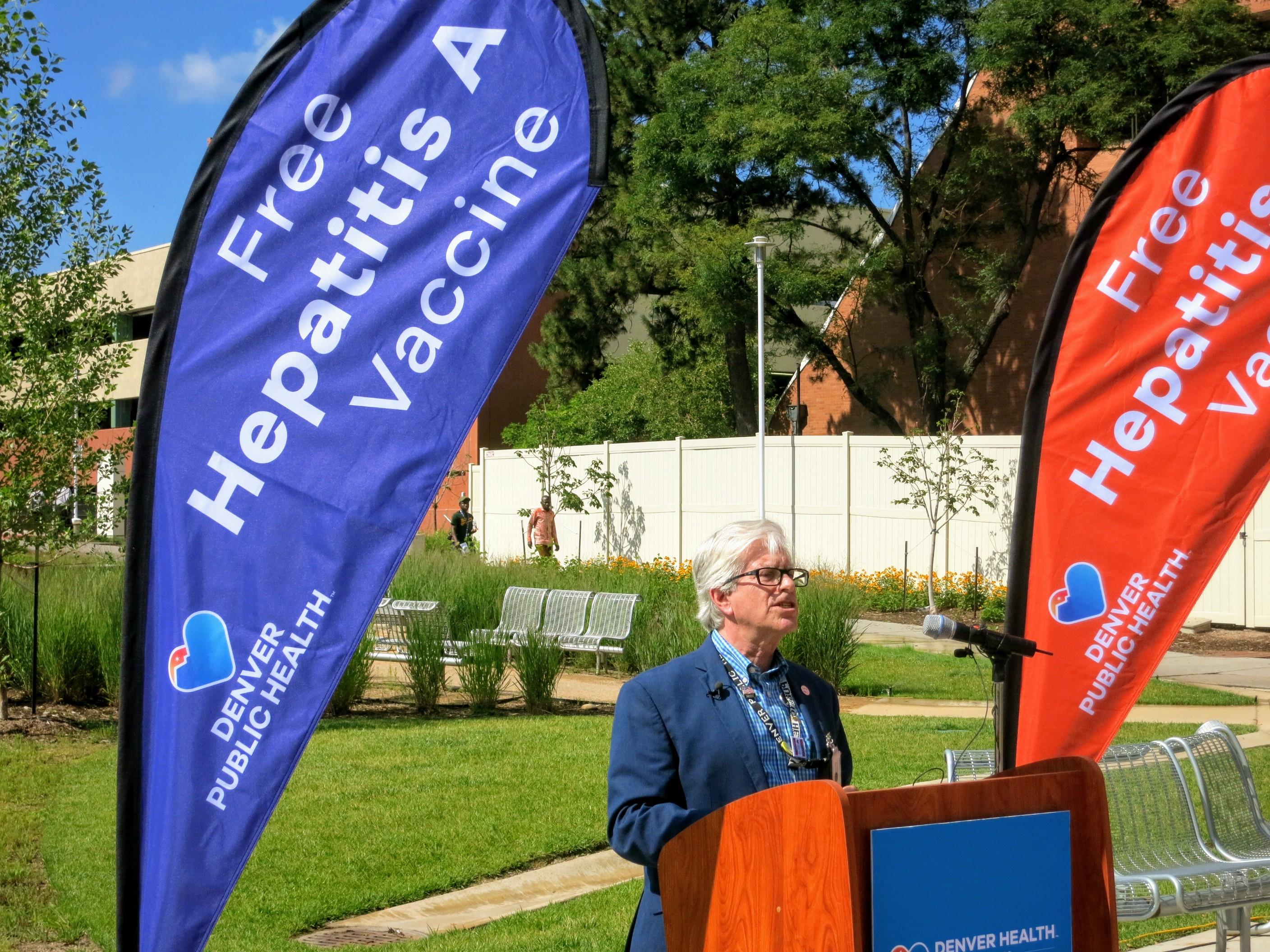Denver public health authorities say four people living in homelessness in the city have been diagnosed with hepatitis A since June, leading to stepped up local efforts to control the highly contagious liver disease that has caused concern across the country in recent years.
"Since 2017 we have been planning to meet this possibility," Dr. Seth Foldy, Denver Public Health's director of epidemiology, informatics & preparedness said at a news conference Monday on the Denver Health campus. He added the risk to the general public was very low.
Ann Cecchine-Williams, deputy executive director of Denver's Department of Public Health & Environment , said no public health emergency has been declared in Denver, nor was one being considered given the current circumstances.
In late 2016, California cities began reporting hepatitis A cases at the start of the outbreak that infected more than 700 people and killed 21 in that state before it was declared over last April. According to the Centers for Disease Control and Prevention, since the national outbreaks began in 2016, 25 states have reported more than 22,000 cases and more than 200 deaths as of late last week. Colorado accounted for 97 of those infections and none of the deaths. Foldy said that most of the Colorado cases have been detected elsewhere in the state. Many of the California cases were among people living in homelessness in San Diego, where the response included sending out street vaccination teams of nurses, homeless outreach workers and police and setting up public hand-washing stations.
The hepatitis A virus, which can be persistent, is usually spread from the feces of an infected person via food or drink. Early symptoms of infection can feel like flu, and more advanced symptoms include yellowish eyes and skin. The four recent Denver cases involved people who were diagnosed after coming to hospital emergency rooms in the city. They had spent time in areas frequented by people experiencing homelessness downtown and along Broadway and Colfax Avenue, according to Denver Health officials. All four have recovered.
Enabling people to wash their hands with soap and water after using the bathroom is key to controlling hepatitis A and, as Foldy acknowledged, a challenge for people who have no home. The CDC recommends hepatitis A vaccinations for, among others, people who use drugs, are experiencing homelessness or are jailed.
Foldy was joined at Monday's news conference by Danica Lee, director of public health inspections for Denver's Department of Public Health and Environment, who had cited the threat of hepatitis A earlier this year when she led a cleanup of the sidewalks and alleyways around the Denver Rescue Mission's Lawrence Street Shelter that targeted human waste, discarded drug paraphernalia and other hazards.

In recent years Denver public health officials working with homeless service providers have given more than 3,500 free vaccinations supplied by the federal government to try to prevent a widespread hepatitis A outbreak in the city, Foldy said.
He said that in the wake of the recent cluster of cases the prevention effort has been stepped up with free vaccines offered on the streets and in the parks. Since July 1, the Denver Sheriff Department has been offering vaccines to inmates identified as drug users or as experiencing homelessness, Foldy said. Sites where people are experiencing homelessness or who inject drugs or who have been incarcerated can get a free hepatitis A vaccine can be found here.
Cathy Alderman, the Colorado Coalition for the Homeless's vice president of communications and public policy, said her organization was allowing health workers beyond nurses to administer vaccinations at its two main clinics, from its mobile clinic and at satellite clinics in shelters.
"We're just trying to spread the word that this is preventable. It's much easier to prevent than to treat," she added. "What I really hope is that we don't get to the point where we have an outbreak."
Lee said her department was looking at ways to improve access to public toilets and hand-washing facilities that have proven effective elsewhere in Colorado and in the country and at whether more cleanups like the one at Denver Rescue Mission might be necessary.
The advocacy group Denver Homeless Out Loud has long campaigned for the city to provide toilets and washrooms for people experiencing homelessness. In an action plan released last week as the mayor and city council started a new term, the group led by people who are or have experienced homelessness said "the solution to poop and pee outside is accessible public bathrooms. Currently there are no accessible public bathrooms open 24/7 in Denver and the few public bathrooms that do exist are only open limited hours of the day."
Denver Homeless Out Loud called for placing portable toilets or permanent bathrooms near places where people experiencing homelessness camp.
Terese Howard of Denver Homeless Out Loud said Monday that she had not seen an increase in the availability of bathrooms.
"If you want to address the problem you need to have sanitation services" that are regularly cleaned, Howard said.
Alderman of the the Colorado Coalition for the Homeless said public hand-washing stations such as those set up in San Diego after the outbreak in that California city could make sense as a permanent fixture along Denver's 16th Street Mall and other highly frequented places for general use.
"It's not just the homeless who should be washing their hands," Alderman said.













